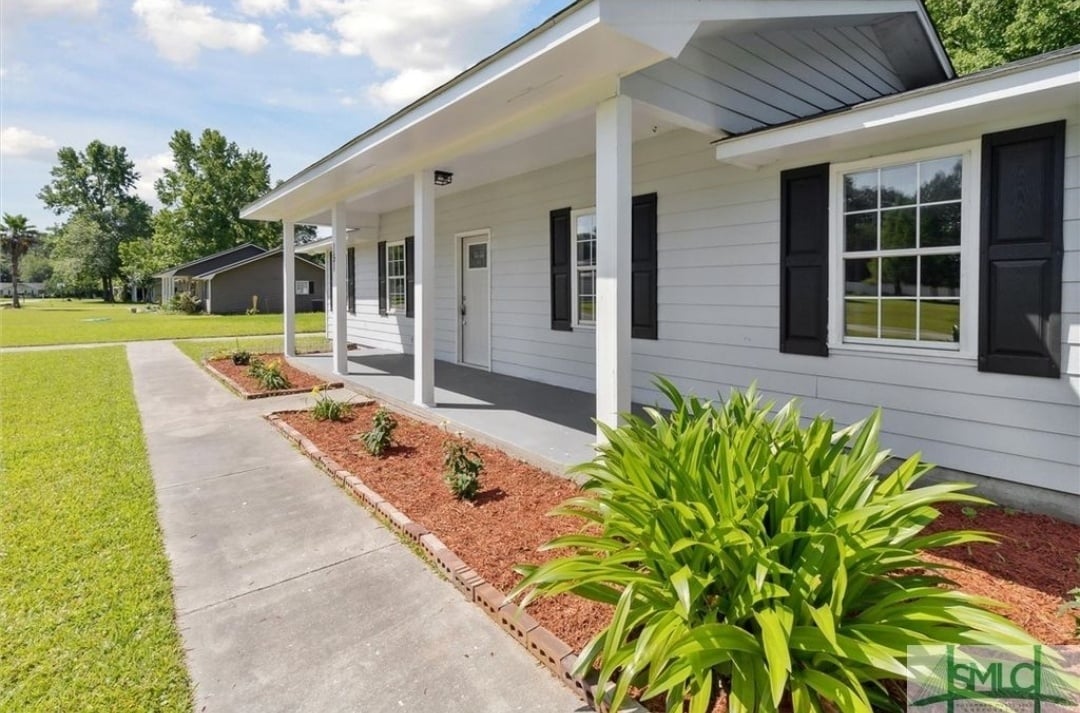Navigating the realm of real estate investment can often seem daunting, especially when confronted with the industry's specialized jargon. At SkyBeam Capital, we understand the importance of clear communication and are dedicated to demystifying these terms for our borrowers. Our goal is to empower you with the knowledge needed to make informed decisions, ensuring a smoother journey into real estate investing.
Related Blog: A Beginner's Guide to Real Estate Investing
Breaking Down Key Real Estate Terms
Broker
An intermediary who connects borrowers with lenders, helping to facilitate loan transactions and negotiate terms.
Equity
Equity is the difference between the market value of a property and the amount of money that is still owed on the loan. A broad term, equity, at its essence, is about ownership.
LTV (Loan-to-Value Ratio)
The Loan-to-Value Ratio, or LTV, is a critical metric that lenders use to assess the risk attached to a loan. It's calculated by dividing the unpaid principal balance by the value of the property. Loans with a high LTV ratio are generally seen as higher risk, which can influence interest rates and lending criteria. Properties that need renovation typically have two values - an as-is (pre-rehab) value and an After Repair Value (ARV). LTV could refer to either of these values so it is important to recognize which is being used in any setting. A good understanding of LTV can help investors leverage their investments while managing risk.
LTC (Loan-to-Cost Ratio)
LTC, or Loan-to-Cost Ratio, is another pivotal metric used by lenders to evaluate how much "skin in the game" a borrower has in a project. It is calculated by dividing the loan amount by the total cost of acquiring and renovating the property. A lower LTC ratio indicates a larger contribution from the borrower, reducing the lender's risk and often resulting in more favorable loan terms.
ARV (After Repair Value)
ARV stands for After Repair Value, reflecting the property's expected market value after all necessary renovations and repairs are completed. Real estate investors often calculate ARV to estimate the future worth of their investment and to gauge the potential profitability of a fix-and-flip project. Knowing the ARV helps in making informed decisions about the purchase price, renovation budget, and feasibility of a project.
Cash Flow
In the realm of rental properties, Cash Flow is the net amount of cash that is being generated by an investment. Positive cash flow means that a property is generating more income than operational and maintenance costs, making it a desirable scenario for investors. Understanding and calculating cash flow is essential for assessing the financial health of a rental investment and ensuring long-term profitability.
Market Value
Market value is the amount a property would sell for under normal market conditions. It's affected by various factors, including location, market trends, and property specifics. Understanding market value helps investors make educated decisions about buying and selling to ensure they're getting a good deal.
Capitalization Rate
Cap Rate, as it's commonly known, is a metric used to assess the rate of return on an all-cash purchase of an income-generating property. It's calculated by taking the property's net operating income and dividing it by the current market value, or purchase price. A high cap rate could indicate a good investment opportunity, but be sure to thoroughly analyze all aspects of the property's performance.
Return on Investment
Return on Investment, or ROI, is a percentage that measures the profitability of an investment. In the context of real estate, it compares the property's gain relative to its cost. Understanding ROI can help investors evaluate and compare different investment opportunities to ensure they're making the best financial decision.
Residential Real Estate
Investing in residential properties is usually the starting point for many investors. Whether it's single-family homes, condos, or small multifamily units, residential real estate can offer consistent income and a more straightforward investment experience.
Commercial Real Estate
For the more experienced investor, commercial real estate can be an excellent growth and income opportunity. Terms and processes are more complex, but the rewards can also be substantial.
REITs
Real Estate Investment Trusts, or REITs, are a way to invest in real estate without having to buy, manage, or finance properties yourself. They offer regular income streams, diversification, and can be more liquid than traditional investing in real property. Publicly traded REITs offer similar liquidity to the stock market with the benefits of real assets backing their value.
Renovation and Flip Investments
Investors who are handy or have a team of contractors can find success in flipping properties. This involves buying a property, renovating it to increase its value, and then quickly selling it for a profit. While potentially lucrative, this strategy carries higher risks and may require a significant time investment.
Bridge Loan
A bridge loan is designed for the short-term financing of property purchases or for funding the initial construction or rehabilitation of a project. Typically, these loans have a duration of 2 years or less, but never exceed five years, serving as a bridge until long-term financing can be secured or the property is sold. This type of loan commonly applies to single-family homes, properties with 1-4 family units, and small multifamily properties.
Ground-Up Construction
A "ground-up" (or GUC) project refers to a real estate development initiative that begins on an undeveloped parcel of land or with the total demolition of a pre-existing structure. These projects focus on the construction of new buildings from scratch, as opposed to the renovation or refurbishment of existing structures.
Real estate investing doesn't have to be a maze of complex terms. This guide is your first step to mastering real estate language. Remember, knowledge is key. The more you know, the better equipped you are to make smart investment choices and avoid costly mistakes. Start your investment journey confidently, armed with the know-how to turn your real estate goals into profitable ventures.
At SkyBeam Capital, we understand the importance of investing in real estate and provide our clients with the knowledge and resources they need to make informed decisions. Our team of experienced professionals can help you find the right opportunity and guide you through the entire process. So, if you're ready to take the plunge and get into real estate investing, let us help you make it a reality. Contact us today to get started.





.webp?width=851&height=771&name=Location%20Guide%20Cover2%20(1).webp)

